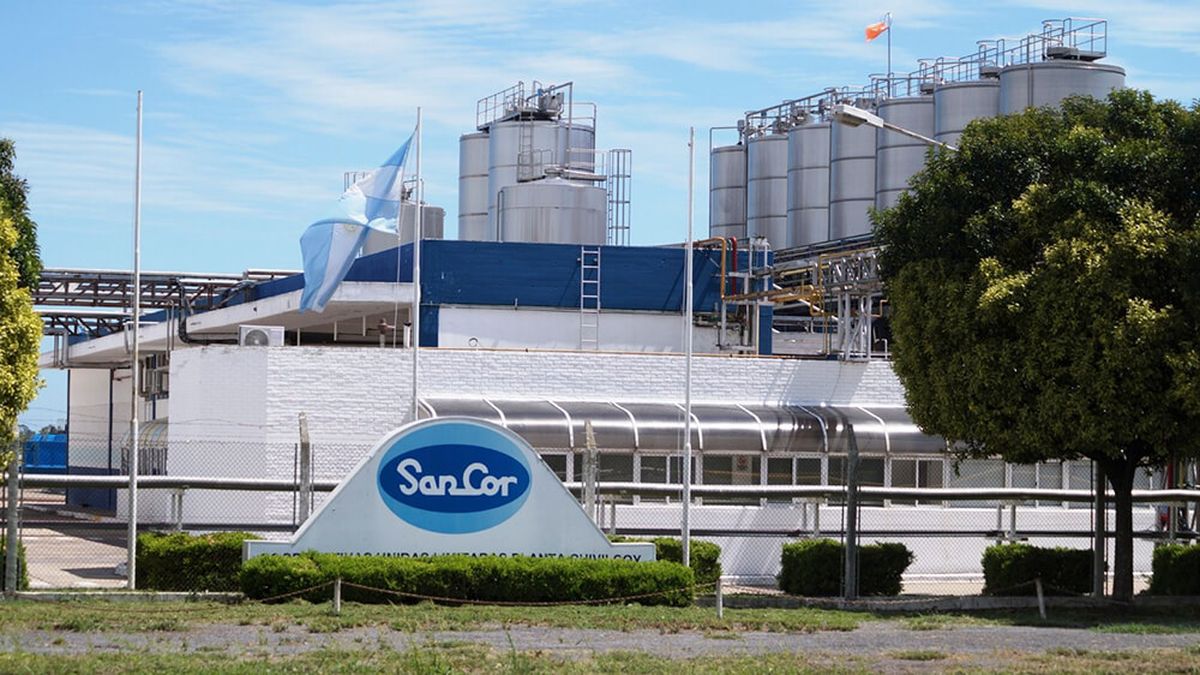The historic Cooperativa Sancor, who knew how to be an emblem of the Argentine dairy industry, faces one of the most critical chapters of its existence. In this context, the Association of Workers of the Milkish Industry of the Argentine Republic (Atilra) came out to deny recent accusations and to separate himself from responsibilities on the company’s debacle, while directly pointsing to poor management and wrong decisions such as the main causes of the crisis.
The statements that unleashed the controversy came from Pedro Morini, former secretary of dairy of Santa Fe and current advisor to the Provincial Dairy Table. As he said in an interview, “there were many their own mistakes, a guild who wanted to keep the company, associates who stopped contributing their milk because they did not charge, and the deterioration that was seen in gondolas.”
For its part, In an extensive statement signed by his secretary general, Héctor “Etín” Ponce, Atilra described these statements as “of a supine ignorance.” “From Atilra We have never intended to keep any company in the sector, And such possibility is absolutely seen from the legal point of view, becoming impossible for someone to think rationally, ”the guild replied.
In turn, the union entity stressed that the responsibility of the crisis does not fall on workers, but on the business efforts that have happened in Sancor for years. “Neither workers nor Atilra manage companies; This is a task reserved for the authorities. The workers are responsible for the quality of the products and victims of the decisions of those who have been directing the cooperative ”, They pointed.
The guild also recalled that Sancor employees suffered a double damage: on the one hand, years of not collecting their complete salaries; on the other, the retention of contributions for social security, retirement and mutuals that were never effectively deposited in the corresponding organizations. “Despite this, for a long time, they continued to provide their services until one day they opened the refrigerator and contemplated that they did not have to feed their families,” said the statement.
Despite the crossroads, Atilra reaffirmed his willingness to collaborate with the industrial sector, remembering previous experiences of successful reconversion in companies such as Milkaut and Molfino Hnos. “When these companies crossed insurmountable difficulties, their managers resorted to foreign investors, who contacted us to know our opinion and seek our accompaniment. How could it be otherwise, we provide our support, and the results are in sight, ”said the guild.
The truth is that Sancor’s deterioration is not new, but the current crisis seems to have reached a limit point. At the beginning of February, the Cooperative formally requested the opening of a preventive contest of creditors before the Court of First Instance of Rafaela. With a debt that is around US $ 400 million, the company seeks to stop embargoes and restructure its liability to avoid bankruptcy.
The judicial presentation occurs in a context of productive paralysis, mass layoffs and closed plants. In recent weeks, more than 300 employees were disconnected from the plants of Córdoba and Santa Fe, which further tightened the conflict with Atilra.
What follows now in more is an unknown, since the company urgently needs fresh funds to recover its productive capacity, something that today seems practically a utopia. In this context, andn The dairy sector is speculated with the possibility that a large company seeks to buy some of the five production plants that Sancor currently has, But the reality is that it would not be so easy. First, these productive units have not received investments for technological improvements and on the other the high staffing of personnel is another problem that a possible buyer should face.
To make matters worse, the dairy industry does not cross its best moment in the country. Companies that turn the bulk of its production to the domestic market are very complicated by the fall in purchasing power and those that export have high labor costs under their backs that complicate their profitability. Thus, Sancor’s crisis deepens and few escape routes appear.
Source: Ambito




